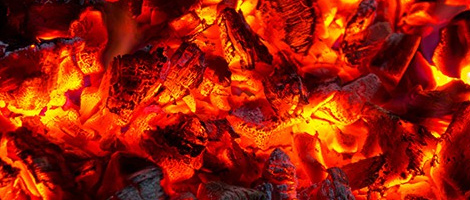The Incredible Benefits of Charcoal: Unleashing the Power of Nature's Black Gold
2025-06-0250

Charcoal, often referred to as nature's black gold, is a versatile substance derived from organic materials like wood, coconut shells, or peat. While commonly associated with barbecues and art supplies, charcoal has gained increasing recognition for its remarkable properties and numerous applications across various industries. From skincare and oral hygiene to environmental remediation and water filtration, charcoal's unique characteristics make it an invaluable resource. In this article, we explore the incredible benefits of charcoal and how it continues to captivate scientists, researchers, and consumers alike. 1. Activated Charcoal for Detoxification: Activated charcoal, produced through a process of heating charcoal at high temperatures, has remarkable detoxification properties. It is widely used in the medical field to treat drug overdoses and poisonings, as it can effectively absorb toxins and chemicals. Additionally, activated charcoal is a popular ingredient in skincare products, renowned for its ability to draw out impurities, unclog pores, and regulate oil production. 2. Charcoal for Oral Health: Charcoal has emerged as a natural alternative for maintaining oral hygiene. Charcoal toothpaste and powder have gained popularity due to their ability to remove stains, whiten teeth, and combat bad breath. The porous nature of charcoal helps absorb plaque, bacteria, and toxins, promoting healthier teeth and gums. 3. Environmental Remediation: Charcoal plays a significant role in environmental remediation by absorbing and neutralizing pollutants. It is commonly used to mitigate soil contamination caused by heavy metals, pesticides, and other harmful substances. The unique adsorption properties of charcoal make it an effective tool for cleaning up contaminated sites and restoring ecological balance. 4. Charcoal as a Cooking Fuel: Charcoal has been used as a cooking fuel for centuries, providing a high heat source for grilling, smoking, and barbecuing. It offers a distinct smoky flavor to food and is considered more environmentally friendly than traditional fossil fuels. Moreover, charcoal briquettes made from compressed charcoal dust are an efficient and sustainable fuel option. 5. Water Filtration and Purification: Charcoal's porous structure makes it an excellent filtration medium for water purification. Activated charcoal filters effectively remove impurities, chemicals, and organic contaminants, ensuring safe and clean drinking water. Charcoal filters are commonly used in household water pitchers, faucet attachments, and portable water bottles. 6. Charcoal in Cosmetics: Charcoal has found its way into the beauty industry, thanks to its ability to absorb excess oil, toxins, and impurities from the skin. Charcoal-infused face masks, cleansers, and scrubs have become popular for their deep-cleansing and detoxifying properties. These products are particularly beneficial for individuals with oily or acne-prone skin. Conclusion: Charcoal's versatility and unique properties have made it an indispensable resource across a wide range of applications. From its detoxification abilities to its environmental remediation potential, charcoal continues to impress scientists and consumers alike. As we delve deeper into harnessing the power of nature's black gold, it is clear that charcoal will play an increasingly vital role in various industries, offering sustainable solutions and numerous benefits for both human health and the environment.
Related products
Articles category